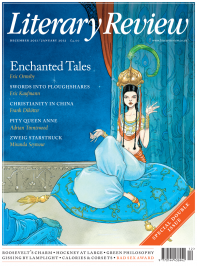Rachel Polonsky
‘Engineers of Souls’
Moscow, the Fourth Rome: Stalinism, Cosmopolitanism, and the Evolution of Soviet Culture, 1931–1941
By Katerina Clark
Harvard University Press 420pp £25.95
‘Two Romes have fallen, Moscow is the third, and there will be no fourth!’ The title of Katerina Clark’s cultural history of the Soviet 1930s is taken from the resonant prophecy of the sixteenth-century Russian monk, Filofei of Pskov, who proclaimed Moscow the final centre of Christendom. Sergei Eisenstein invoked the monk’s words in a 1933 article about his (never realised) film Moscow: ‘this pronouncement by Filofei comes across to us from medieval times … Moscow as a concept is the concentration of the socialist future of the entire world.’
As Clark explains in Moscow, The Fourth Rome, in the messianic Soviet culture of the 1930s Moscow was a mighty guiding concept, the ‘model and center’ of a new universal ‘belief system’, the beautiful city to which all historical roads led, the last ‘Rome’. The book’s cover features the image

Sign Up to our newsletter
Receive free articles, highlights from the archive, news, details of prizes, and much more.@Lit_Review
Follow Literary Review on Twitter
Twitter Feed
Alfred, Lord Tennyson is practically a byword for old-fashioned Victorian grandeur, rarely pictured without a cravat and a serious beard.
Seamus Perry tries to picture him as a younger man.
Seamus Perry - Before the Beard
Seamus Perry: Before the Beard - The Boundless Deep: Young Tennyson, Science, and the Crisis of Belief by Richard Holmes
literaryreview.co.uk
Novelist Muriel Spark had a tongue that could produce both sugar and poison. It’s no surprise, then, that her letters make for a brilliant read.
@claire_harman considers some of the most entertaining.
Claire Harman - Fighting Words
Claire Harman: Fighting Words - The Letters of Muriel Spark, Volume 1: 1944-1963 by Dan Gunn
literaryreview.co.uk
Of all the articles I’ve published in recent years, this is *by far* my favourite.
✍️ On childhood, memory, and the sea - for @Lit_Review :
https://literaryreview.co.uk/flotsam-and-jetsam